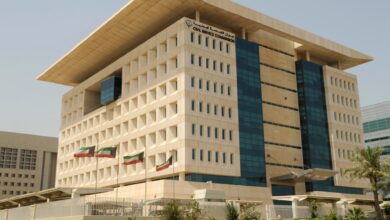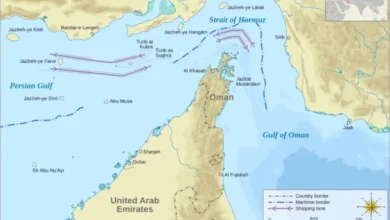
By Gordon Brown and Mohamed A. El-Erian
Special to The Times Kuwait
The Bretton Woods institutions—the International Monetary Fund and the World Bank—are now 80 years old. But they are as under-resourced and poorly supported by national governments as at any time in their history. Their predicament is perhaps the clearest sign that economic and financial multilateralism is fragmenting along with the global economy. Worse, this fragmentation comes at a time of rising international tensions, financial fragility, sputtering growth, rising poverty, and mounting reconstruction bills in Gaza, Lebanon, Ukraine, and elsewhere.
Both institutions are led by individuals who grasp the urgent need for reform to meet today’s challenges. Yet they lack sufficient support from their political masters: the largest share-holding countries whose votes are crucial for reform. To overcome the longstanding international coordination problems that have undermined reform efforts, we need a revamped G20 to take the lead. With its current chair, Brazil, it is well-placed to make significant progress.
Financial firepower is of course only one measure of the effectiveness of our multinational institutions, but it is an important one given the world we live in. The resources available to the IMF represent less than 1 percent of the global economy. Yet, as the lender of last resort and a financial safety net for the world, it is expected to deal with the problems of 191 member countries, as well as joining the global response to ‘non-traditional’ and ‘new’ issues such as climate change, gender disparities, and inequality.
Such under-funding contradicts the intentions of the IMF’s founders, led by the United Kingdom and the United States. At its creation, the Fund could draw on resources equal to roughly 3 percent of global GDP to help address a mere 44 countries’ monetary and balance-of-payments problems. Since then, IMF membership has grown fourfold, yet its resources have declined by more than two-thirds relative to GDP. This erosion is reflected in the Fund’s waning global heft and loss of capacity to solve tricky country cases.
The Fund’s surveillance role also faces major challenges. Framed as a crisis-prevention tool for both individual countries and the overall system, IMF surveillance has, over decades, failed to predict and correctly frame economic shocks. Admittedly, national policymakers have failed, too. Some failures are understandable, as in the case of the pandemic. But others, including the supply-chain disruptions and subsequent surge in inflation, could have been foreseen and subjected to better analysis. Such slippages support the case for new investments in a more effective system of surveillance.
The World Bank is even less adequately resourced for the additional climate responsibilities it has been given. In a report commissioned by the Indian G20 presidency last year, co-chairs Lawrence H. Summers and N.K. Singh argued that multilateral development banks (MDBs) need to triple their lending by 2030, when it should be around $400 billion annually. Yet allocations to lower- and middle-income countries in 2023 were equivalent to just 0.07 percent of global GDP. The $73 billion earmarked for the World Bank in the 2023 fiscal year represented the smallest commitment to development in the institution’s existence.
What ails the IMF and the World Bank is not limited to these two institutions. We are witnessing a broader and increasingly worrisome breakdown in multilateralism, which comes at a time when the world’s common problems can be solved only through coordination and common action.
Today’s MDBs, which include the regional development banks, provide loans equivalent to just 0.5% of developing countries’ gross national income, down from a peak of 0.7% in the 1990s. Equally, the World Trade Organization struggles with an overly legalistic judge-based rulebook that was imposed on it at the height of neoliberalism in the 1990s. Its effectiveness has always hinged on negotiation, conciliation, and arbitration, but these approaches have taken a back seat to geopolitical rivalries and unilateralism in recent decades.
Then there is the World Health Organization. Though the WHO’s current replenishment target is $11 billion, only $4 billion has been guaranteed, and its annual budget is no larger than that of medium-size US hospitals. By denying the WHO the resources it needs, while at the same time asking it to cover new health concerns, including well-being as a whole, we are depriving ourselves of the benefits of a global institution that finds it difficult to finance even its most basic tasks.
Finally, the creation of the G20 was a welcome response to the realization that the G7 no longer represented the face of global economic influence and power. By bringing together countries that account for around 80 percent of world GDP, the G20 had the best chance of helping us prevent or manage systemic crises like the one in 2008-10.
Yet despite its obvious potential, the G20 has operated without a structure to ensure continuity and effectiveness. And because its members include Russia and China, the US still prefers to work through the G7, which Jake Sullivan, the current national security adviser, sees as “the steering committee of the free world,” even though G7 countries now represent only 43 percent of world GDP.
A sweeping approach to reforming the world’s multilateral institutions, often presented under the banner of ‘Bretton Woods 2.0’, is unlikely to get off the ground. But incremental progress is possible. Initiative by initiative, it could develop into a critical mass that would be welfare-enhancing for many, if not most, countries and people.
The WTO, for example, should focus on leveraging the undeniable skills of its current director-general, Ngozi Okonjo-Iweala, to solve trade disputes through conciliation, arbitration, and negotiation. That would mark a move away from its overly legalistic, and now broken, judge-based appeal system.
Similarly, the IMF, led by an equally charismatic managing director, can enhance its contributions to crisis prevention and resolution by leaning into its role as a global early-warning system. That also means responding to any future crisis with more financial firepower and by mobilizing lending capacity to enhance resilience against economic shocks, to negotiate a much-improved sovereign-debt restructuring mechanism, and thus to create a more comprehensive global financial safety net with limited conditionality in situations of large exogenous shocks.
As for the World Bank, its dynamic president, Ajay Banga, has started his term with a determination to reform and is on the right track in launching a Livable Planet Fund focused on human capital and environmental stewardship. But this initiative needs more resources, and Banga has justifiably called for the largest-ever replenishment of the International Development Association, which provides concessional loans and grants to the poorest countries.
The key to revitalizing the world’s multilateral institutions is to reform their governance to reflect the enormous shifts in the configuration of the global economy over the past few decades. The shareholding structure of the IMF and the World Bank, and the outmoded process of allocating top jobs according to nationality, are no longer in step with current realities.
Even today, 59.1 percent of voting shares in the IMF are held by countries representing just 13.7 percent of the world’s population. India and China are the world’s two most systemically important and influential emerging economies, yet their combined share is only 9 percent. Without a change here, an institution that is supposed to address the world’s biggest economic and financial problems will face growing doubts about its legitimacy, fairness, and effectiveness by most of the Global South.
Massive revisions to the international system and its institutions generally come about only after a complete breakdown of the current order. Hence, the post-1814 balance of power emerged after Napoleon’s defeat; the post-1918 Versailles system arose after five dynastic empires collapsed and shattered into dozens of new nation-states; the post-1945 architecture followed the defeat of Germany, Italy, and Japan; and what US President George H.W. Bush called a liberal “new world order” but it had to wait until the collapse of the Soviet Union and the Warsaw Pact.
The urgent challenge today is to achieve the transition to a fifth world order without weathering a damaging breakdown. To be legitimate, such an order must account for the ongoing global realignment of economic and political power, especially the ambitions of the Global South. And to be effective, it must be not only stable and fair, but also sustainable and open to effective collective action.
Two paths are open to us. One leads toward ever more global fragmentation and deepening crises, while the other offers a chance to pursue both individual and shared prosperity through joint solutions to common problems. The choice seems crystal clear.
The key to revitalizing the world’s multilateral institutions is to reform their governance to reflect the enormous shifts in the configuration of the global economy over the past few decades.
 Gordon Brown
Gordon Brown
Gordon Brown, a former prime minister of the United Kingdom, is UN Special Envoy for Global Education and Chair of Education Cannot Wait.
 Mohamed A. El-Erian
Mohamed A. El-Erian
Mohamed A. El-Erian, President of Queens’ College at the University of Cambridge, is a professor at the Wharton School of the University of Pennsylvania and the author of The Only Game in Town: Central Banks; Instability, and Avoiding the Next Collapse; and a co-author with Gordon Brown, Michael Spence, and Reid Lidow. of Permacrisis: A Plan to Fix a Fractured World .
Copyright: Project Syndicate, 2024.
www.project-syndicate.org














